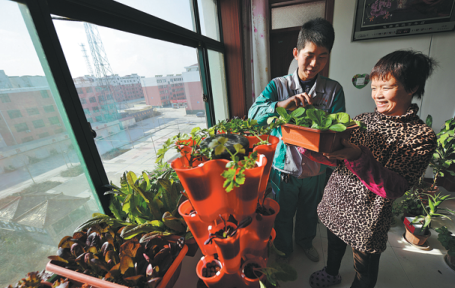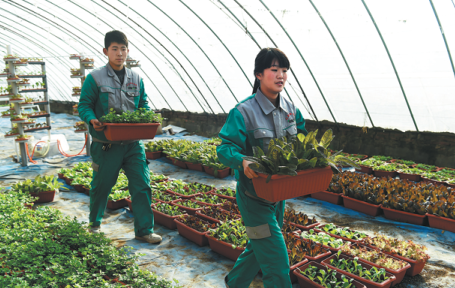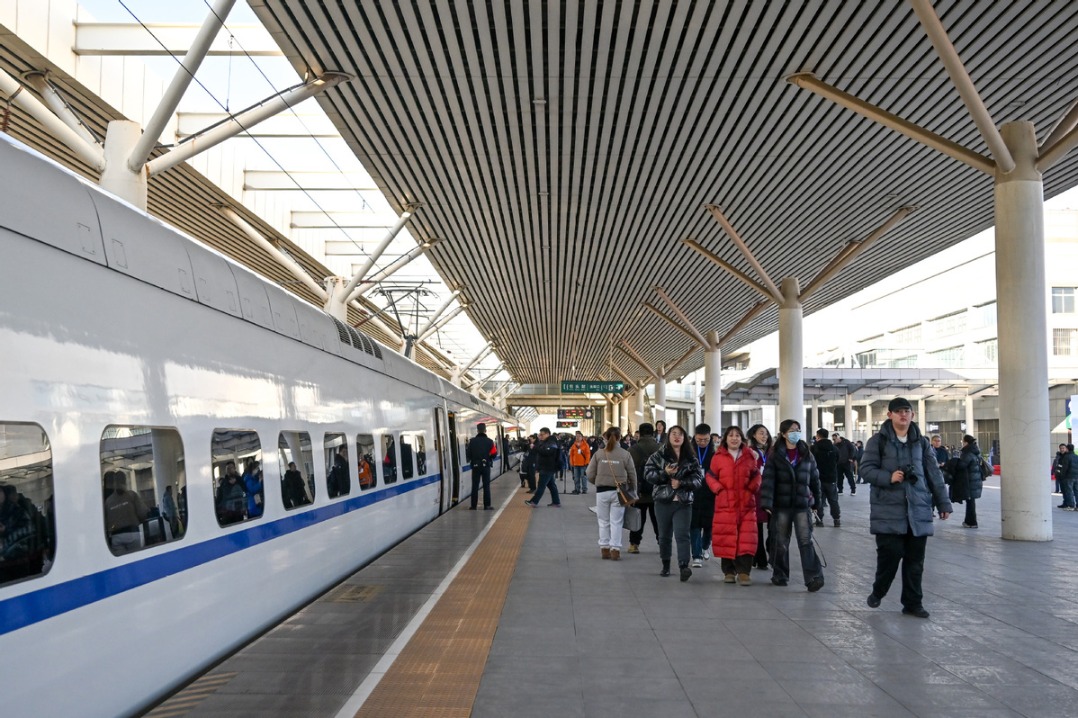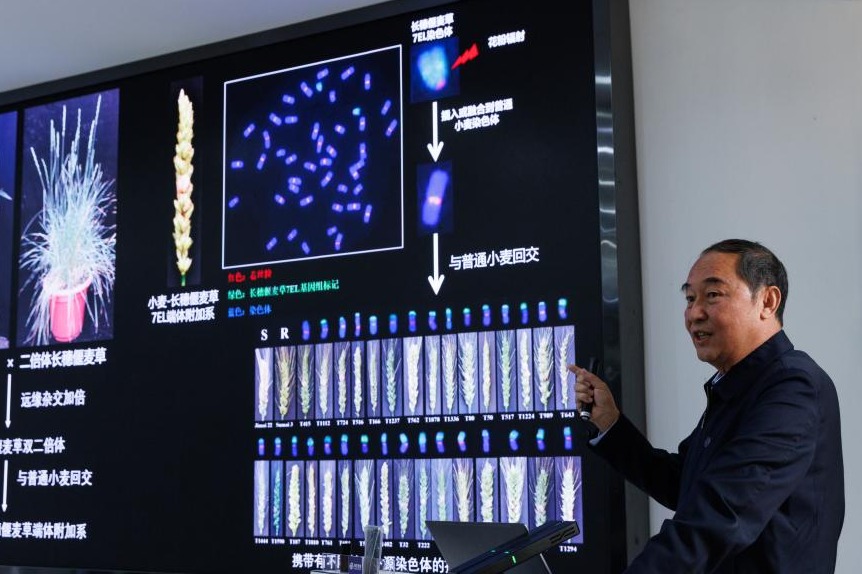Urban farming flourishes in homes as pandemic rages on

BANGKOK-Coronavirus lockdowns are pushing more city dwellers to grow fruit and vegetables in their homes, providing a potentially lasting boost to urban farming, according to architects and food experts.
Panic buying in some countries during the crisis has led to empty supermarket shelves and an uptick in the purchase of seeds, according to media reports.
"More people are thinking about where their food comes from, how easily it can be disrupted, and how to reduce disruptions," said landscape architect Kotchakorn Voraakhom, who designed Asia's largest urban rooftop farm in Bangkok, Thailand.
"People, planners and governments should all be rethinking how land is used in cities. Urban farming can improve food security and nutrition, reduce the impact of climate change, and lower stress," she said.
More than two-thirds of the world's population are forecast to live in cities by 2050, according to the United Nations.
Urban agriculture can be crucial to feeding them, potentially producing as much as 180 million tons of food a year, or about 10 percent of the global output of pulses and vegetables, according to a 2018 study published in the journal Earth's Future.
In the difficult circumstances during the coronavirus outbreak, people's concerns about food security have led to more kitchen gardens.
In recent decades, the fast pace of urbanization in developing countries is causing urban malnutrition, the Food and Agriculture Organization said, calling on planners to become "nutrition partners" and pay attention to food security.
Despite pressure to build homes and roads, there is more than enough urban land available within UK cities to meet the fruit and vegetable requirements of its population, researchers at the Institute for Sustainable Food at Britain's University of Sheffield said in a study last month.
In Singapore, a country that imports over 90 percent of its food, urban farming, including vertical and rooftop farms, is fast becoming popular.
The city-state, which ranks on top of the Economist Intelligence Unit's global food security index for 2019, aims to produce 30 percent of its nutritional needs by 2030, by increasing the local supply of fruits, vegetables and protein from meat and fish.
Singapore lawmaker Ang Wei Neng said early this month that during the coronavirus outbreak, "it would be wise for us to think of how to invest in homegrown food".
For Allan Lim, chief executive of ComCrop, a commercial urban farm in Singapore, the pandemic is a reminder that disruptions to food supplies can take place at any time.
"It has definitely sparked more interest in local produce. Urban farms can be a shock absorber during disruptions such as this," he said.
Agencies Via Xinhua


Today's Top News
- Five continents, five rhythms in 2025
- Lawmakers review draft law to expand childcare services
- China's new-style tea brands find a hot new market in US
- Xi extends congratulations to Chilean president-elect
- Japan urged to stop provocative moves
- Shanxi ends province-wide blanket fireworks ban






























